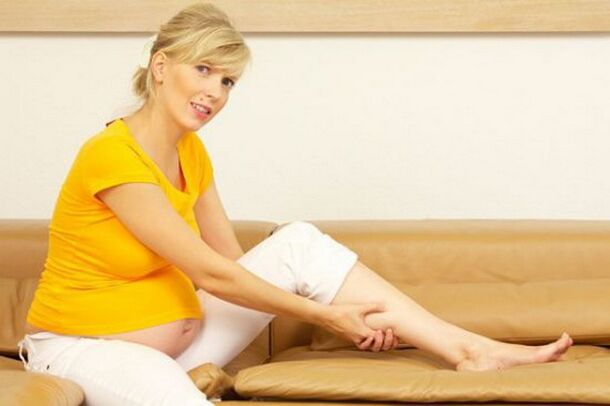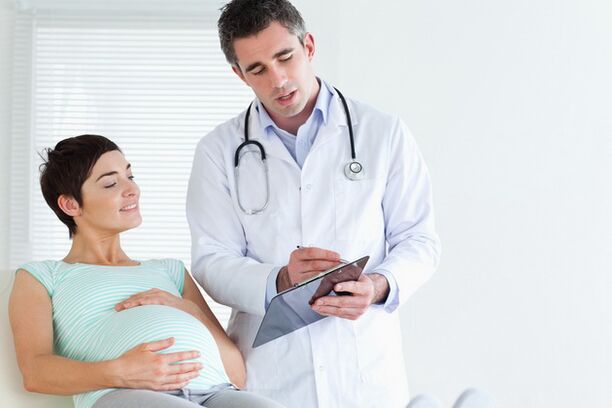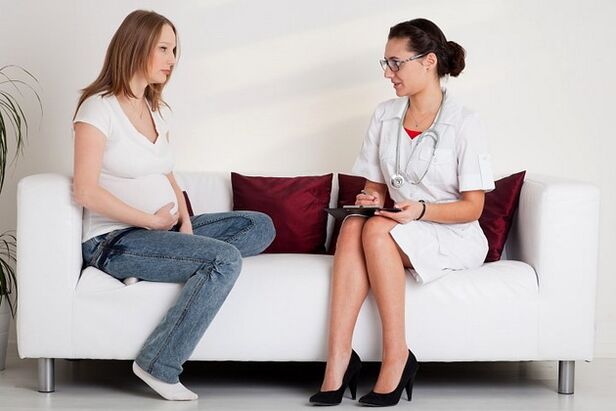
In the process of bearing a child, a woman’s body faces a whole cascade of changes.Changes affect all systems of the body.Such changes are due to changes in hormonal levels.More than 50% of pregnant women notice the appearance of spider veins and dilated veins: pregnancy and varicose veins are frequent companions.
The reason for this trend is the pressure that the pregnant uterus puts on the pelvic veins.Venous congestion increases, intravenous pressure increases and the tone of the vascular walls decreases.
Varicose veins are not only an aesthetic defect, but also a condition that can lead to serious complications.That is why it is so important to begin timely prevention and treatment of the disease.
What are varicose veins
This pathological condition is characterized by elongation and dilation of the veins in the lower extremities.It occurs against the background of increased load on the vascular wall.
Pathology occurs in 45–50% of the adult population.The first symptoms of the disease appear between the ages of 25 and 32.
People whose work activity involves sitting and standing for a long time have a special predisposition.A hereditary predisposition to the disease, especially in the female line, can increase the risk of developing varicose veins.
Other risk factors include:
- drinking alcohol and smoking;
- excess body weight;
- physical monotony and sedentary lifestyle;
- digestive disorders (constipation);
- strength sports;
- cardiovascular diseases;
- chronic diseases of internal organs and systems.
Features of varicose veins during pregnancy

Varicose veins of the lower extremities during pregnancy can occur at any stage.The danger of varicose veins during pregnancy is that the disease can be complicated by the development of thrombosis and thrombophlebitis.
The formation of blood clots during pregnancy can pose a threat to the health and life of the mother and child.Unfortunately, statistics indicate that pregnant women are especially susceptible to this disease.
During the process of bearing a child, the expectant mother may develop varicose veins of the uterus during pregnancy, which is a serious threat to the mother and child.
Women with this diagnosis often have placental insufficiency.It occurs due to blockage of the veins located in the placental tissue.Only timely diagnosis and treatment of placental insufficiency will help avoid fetal development abnormalities.
Stages of disease development
If a pregnant woman has visible signs of varicose veins, this indicates an existing venous insufficiency, which worsened with the onset of pregnancy.
Varicose veins have several stages of development:
- Compensatory stage.It is characterized by the appearance of small spider veins, which are clearly visible on the surface of the skin.As evening approaches, a pregnant woman may feel discomfort and heaviness in her legs.
- Partially compensatory stage.Swelling of the lower extremities is added to the existing symptoms.In addition, women complain of pain in the knees, which goes away after being in a horizontal position.Varicose veins of the genital organs often develop during pregnancy, which indicates the progression of the disease.
- Stage of decompensation.This stage poses the greatest danger to the health of a pregnant woman.Swelling of the lower extremities does not go away after a night's sleep.Dilated veins take on a bluish-burgundy hue.Blood circulation is impaired, resulting in an increased risk of trophic ulcers.Quite often, varicose veins of the perineum occur during pregnancy, which is accompanied by characteristic symptoms.
Symptoms
The early stages of varicose veins during pregnancy are asymptomatic, which makes timely diagnosis of the disease difficult.Single spider veins may appear on the surface of the skin.
The second half of pregnancy is characterized by the development of the following symptoms:
- discomfort and feeling of heaviness in the calf muscles;
- rapid onset of feeling tired while walking;
- pain in the knee joints, worsening after walking;
- From time to time, cramps in the calf muscles may occur;
- in the area of dilated veins there may be a disturbing feeling of itching;
- tingling and burning sensation in the calf muscles;
- the development of varicose veins during pregnancy in an intimate place, a woman may complain of discomfort and pain.
After a night's sleep, the characteristic symptoms of the disease are reduced to zero.When the first signs of the disease appear, a woman is advised to consult a medical specialist, since varicose veins are prone to rapid progression.
Causes of varicose veins in pregnant women
There are many causes of varicose veins in pregnancy:
- Increased load on the lower extremities due to increased weight of a pregnant woman.The increase in the size of the pregnant uterus causes compression of some main veins.
- Increased venous blood pressure due to increased blood supply to the fetus.
- Low physical activity of a pregnant woman.Physical inactivity contributes to stagnation of venous blood.
- Changes in hormonal levels.During pregnancy, the content of progesterone in the female body increases, which reduces the tone of the venous walls.
- The process of natural thrombus formation, which is necessary to prevent bleeding during placenta separation.
How dangerous is the disease?

The danger of this condition during pregnancy is that the progression of varicose veins leads to blood clots.
This process equally negatively affects the health of the woman and the fetus.Blockage of placental veins causes disruption of fetal development.The formation of thrombophlebitis and thrombosis can threaten the life of the expectant mother.
Some women may develop varicose veins after pregnancy, although the formation of the pathology occurred while carrying a child.
Diagnostics
Standard diagnosis of varicose veins in pregnant women includes consultation with a vascular surgeon and gynecologist.If a visual examination is insufficient, then the expectant mother is prescribed a number of studies:
- angioscanning;
- ultrasound examination of veins;
- dopplerometry.
Treatment
The problem of varicose veins on the legs during pregnancy is acute.A pregnant woman is not able to use a standard set of medications to treat varicose veins.
Therefore, the question arises: how to treat varicose veins during pregnancy with such a list of restrictions?
Conservative treatment of the disease includes the following measures:
- Tights against varicose veins are used for pregnant women.Compression garments should be put on after waking up without getting out of bed.Thanks to compression stockings, the diameter of the lumen of the veins decreases.
- Therapeutic exercises are carried out, including daily 5-minute exercises.
- A therapeutic diet is followed, which involves increasing the amount of fruits and vegetables consumed.Particular attention is paid to the consumption of fish, cottage cheese and eggs.

Medicines for varicose veins during pregnancy are divided into preparations for external and internal use.Gels and ointments are used for local therapy.
To treat progressive severe varicose veins during pregnancy, women are prescribed medications that improve tissue nutrition, as well as eliminate edema and convulsions.
For this purpose, special tablets prescribed by a specialist are used.In addition, the woman is recommended to take vitamins C and PP.
Prevention of varicose veins
To prevent varicose veins during pregnancy, a woman needs to reduce the load on the lower extremities and improve blood circulation.When in a horizontal position, you need to place your feet on a hill.
In order to improve blood circulation, it is useful to introduce foods such as grapes, cranberries, sea buckthorn, tomato juice, garlic and lemon into the diet.To prevent inguinal varicose veins during pregnancy, it is recommended to perform exercises with a gymnastic ball.
Every woman wonders how to avoid varicose veins during pregnancy if she has a tendency.To ensure that bearing a child does not turn into a real test for a woman, you need to pay increased attention to your health.
Compliance with preventive measures will allow you to avoid varicose veins at any stage of pregnancy.Even with the development of pathology, cases were recorded when varicose veins disappeared after pregnancy, subject to adequate treatment.
























